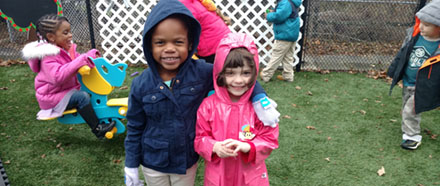Document Type
Honors Paper
Advisor
Loren Marulis
Publication Date
2017
Abstract
Private speech and help-seeking behaviors have found new traction through Zimmerman’s conceptualization of self-regulated learners as “metacognitively, motivationally, and behaviorally active participants in their learning….and are aware when they know a fact or possess a skill and when they do not and, unlike passive classmates proactively seek out information when needed and take necessary steps to master it” (1990, p. 4). The current study is a follow-up of Metacognitive processes in Development [MinD], through which researchers Lindsey Nelson and Professor Loren Marulis analyzed metacognitive skills (i.e., knowledge and behavior) using a puzzle task at the Connecticut College Children’s Program Lab School (2-5 year olds), by examining associations to executive functioning and motivation. Many of the children used expressive language (help seeking and private speech) during the puzzle task, particularly when it became challenging to self seemingly soothe, problem-solve, and speak about prior experiences/ knowledge. To explore this further, this study investigated the potential relations and mediating effects of academic help-seeking and private speech behaviors on metacognitive, executive functioning, and motivation processes in 2-to-5-year-olds. Results indicated that private speech, but not help seeking, was significantly correlated to metacognitive and executive functioning processes. Lack of significance for help seeking was likely due to a measurement issue that I intend to remedy in future studies. For now, I propose that expressive language (to self or others) is a useful strategy in problem-solving situations, and is a critical mechanism for enhancing self-regulated learning.
Recommended Citation
Nelson, Lindsey, "Academic Help-Seeking Behaviors in Young Children" (2017). Human Development Honors Papers. 5.
https://digitalcommons.conncoll.edu/humdevhp/5
The views expressed in this paper are solely those of the author.
